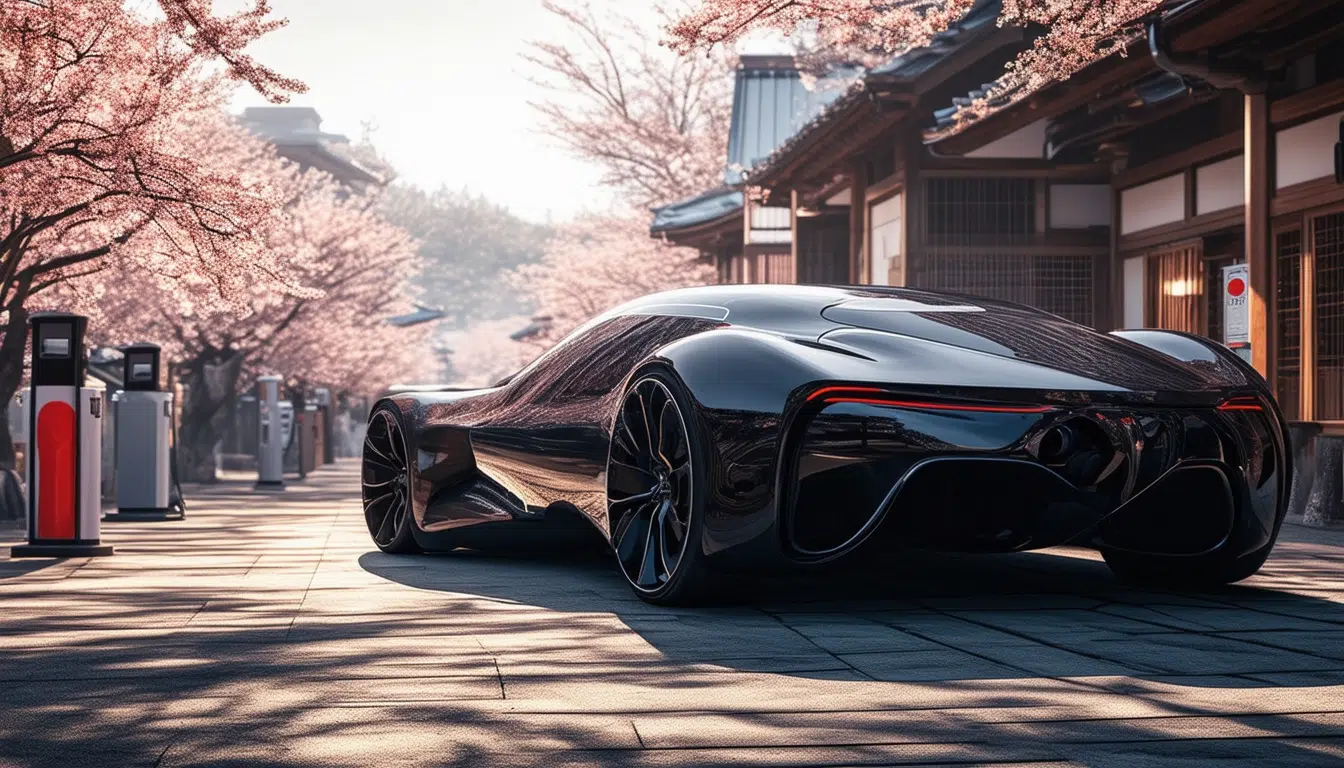Japan has hydrogen, but Sweden has surprised them with a black engine that surpasses 800 HP

While Japan continues to rely on hydrogen as the next energy source for vehicles, Sweden has made a bold statement with the innovation of a black engine that exceeds 800 hp. This development has left experts and automotive enthusiasts astonished by its power and efficiency.
Japan and Its Apostolate for Hydrogen
Japan has been a pioneer in the research and development of hydrogen fuel cell electric vehicles. The Japanese government and automobile manufacturers have heavily invested in this technology as a great alternative to traditional battery electric vehicles. A clear example is the Toyota Mirai, a car based on the TNGA-L platform that equips an electric motor capable of producing 185 hp of power and 300 Nm of torque, powered exclusively by hydrogen.
The Discovery of the Holy Grail of Electrolysis
Recently, Japanese researchers have taken a step forward by discovering a cheap metal that can increase hydrogen production by 1,000%. This discovery could revolutionize the hydrogen industry, making it more accessible and sustainable for future applications.
Sweden and Its Revolutionary Black Engine
For its part, Sweden has surprised the world with a black engine that exceeds 800 hp. This development not only challenges Japan’s hegemony in automotive innovations, but also sets a new standard for power and efficiency.
The black engine of Sweden has been designed with cutting-edge technology that allows it to achieve extraordinary power without compromising the durability and sustainability of the vehicle. This advancement represents a significant leap in automotive engineering and has captured the attention of both experts and enthusiasts.
Comparatives of Innovation
While Japan relies on hydrogen and its electrolysis capabilities, Sweden has focused on maximizing the efficiency and power of traditional engines. The automotive industry has witnessed fierce competition between these two giants of innovation, each striving to establish its technology as the most viable option for the future.
For more information on the future of electricity in the automotive world, you can check out this article. You can also read about Ford’s critical stance towards the UK in its transition to electric vehicles here.
What Does the Future Hold for Us?
As the automotive industry continues to evolve, it is evident that both Japan and Sweden will continue to play crucial roles in the development of advanced technologies. Japan, with its focus on sustainability through hydrogen, and Sweden, with its impressive black engine, are paving the way for paths that once seemed unattainable.
To keep exploring trends in automotive technology, don’t miss the article about Renault’s new hybrid car that promises to revolutionize the combustion engine market here.
The Future of Hydrogen and Sweden’s Incredible Black Engine
Japan has made a strong commitment to hydrogen as an alternative energy source for vehicles, developing advanced technologies in the production and utilization of this fuel. The Toyota Mirai Sport Concept is a clear example of this commitment, with its electric motor that produces 185 hp of power and 300 Nm of torque, powered by hydrogen fuel cells. Japan is not only focused on creating efficient vehicles; its innovation goes beyond that, with discoveries such as a cheap metal that can produce 1,000% more hydrogen through electrolysis, which could revolutionize the energy industry.
While Japan continues to perfect its technologies, Sweden has recently stolen the spotlight with the presentation of an incredible black engine that exceeds 800 hp. This engine has amazed the automotive world with its exceptional performance capabilities, even rivaling the best traditional combustion engines. The automotive industry finds itself at a crucial point, where innovation and efficiency are valued more than ever. The emergence of this Swedish engine demonstrates that there is still room for significant advancements in various types of technologies, not solely focused on hydrogen.
This contrast between the approaches of Japan and Sweden highlights the multiple paths by which the automotive industry can evolve. While one bets on hydrogen as the fuel of the future, the other surprises with high-performance technology based on improved combustion engines. Both nations, each in its own way, are redefining the parameters of what to expect in terms of efficiency, power, and sustainability of future vehicles.




